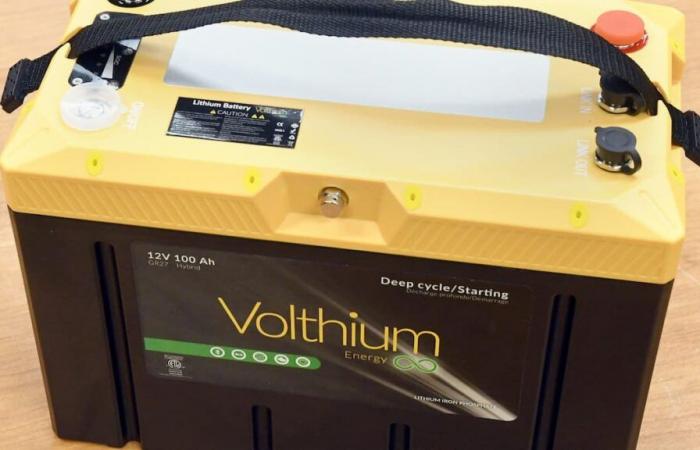In 1970, Lionel Boulet founded the Hydro-Québec (HQ) research center. For 25 years, I developed at IREQ a revolutionary technology of lithium batteries with polymer electrolyte with various French, Japanese and American international partners, notably within the framework of a joint venture between HQ and 3M, co-financed by the Department of energy DOE and USABC (more than US$150 million). Hydro-Québec then became a world leader in all-solid-state lithium batteries.
Thanks to the expertise acquired at IREQ and especially the support of the University of Montreal (UdeM), in 2003 I founded Phostech Lithium, the first global company to produce LFP (lithiated iron phosphate) cathode after having obtained an exclusive license on patents from the University of Texas, UdeM and HQ for the start-up lithium-ion market. From 2005, the German company Süd-Chemie invested more than $80 million in Phostech with the construction of the Candiac LFP plant.
In 2010, the exclusivity of the licenses granted to Phostech was opened up in favor of a “profitable” policy of licensing to mainly Asian producers. Shortly thereafter, Phostech was sold to other investors. Then, in 2022, the factory ceases production.
Cathode
Around 2010, China made the strategic choice of LFP for its electric vehicles and “adopted” Phostech technology. From 2019, BYD and CATL are introducing high-performance electric vehicles using lithium batteries with LFP as the cathode. The concept was quickly taken up by Tesla, which had relied on nickel cathodes instead of iron. All American and European producers are then taken by surprise when faced with high-performance electric vehicles offered at prices that they cannot compete with their nickel cathodes. This is also the case in Quebec with known projects which are delayed or called into question given the uncertainties about the technological choices made.
Why did Quebec, which had 20 years of expertise on LFP and lithium batteries, agree to invest in projects using nickel cathodes without questioning its partners on their technological choices, especially since Did LFP expertise exist in Quebec? I have raised the issue on various occasions with policy makers without really receiving a response.
Expertise locale
It is one minute to midnight for Quebec and the best advice I can still give is that the government finally considers local expertise on iron phosphate and uses its financial levers to promote more acceptable technological choices among its partners, both both environmentally and financially. With its experts, its iron, lithium and phosphate mines and its green energy, all the elements are there to compete effectively with China with a little organization.
Several phosphate projects are underway in Quebec and I suggest that the government consults its local experts: UdeM and HQ who could still play a leadership role in making these choices. Being a stakeholder in one of these projects, I will not go beyond this shared opinion as a tax-paying citizen, but if we do not identify a problem, we have little chance of finding a solution.
Michel Gauthier, Ph. D.
Quebec Prize: Lionel-Boulet 2022 in an industrial environment






